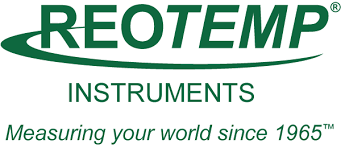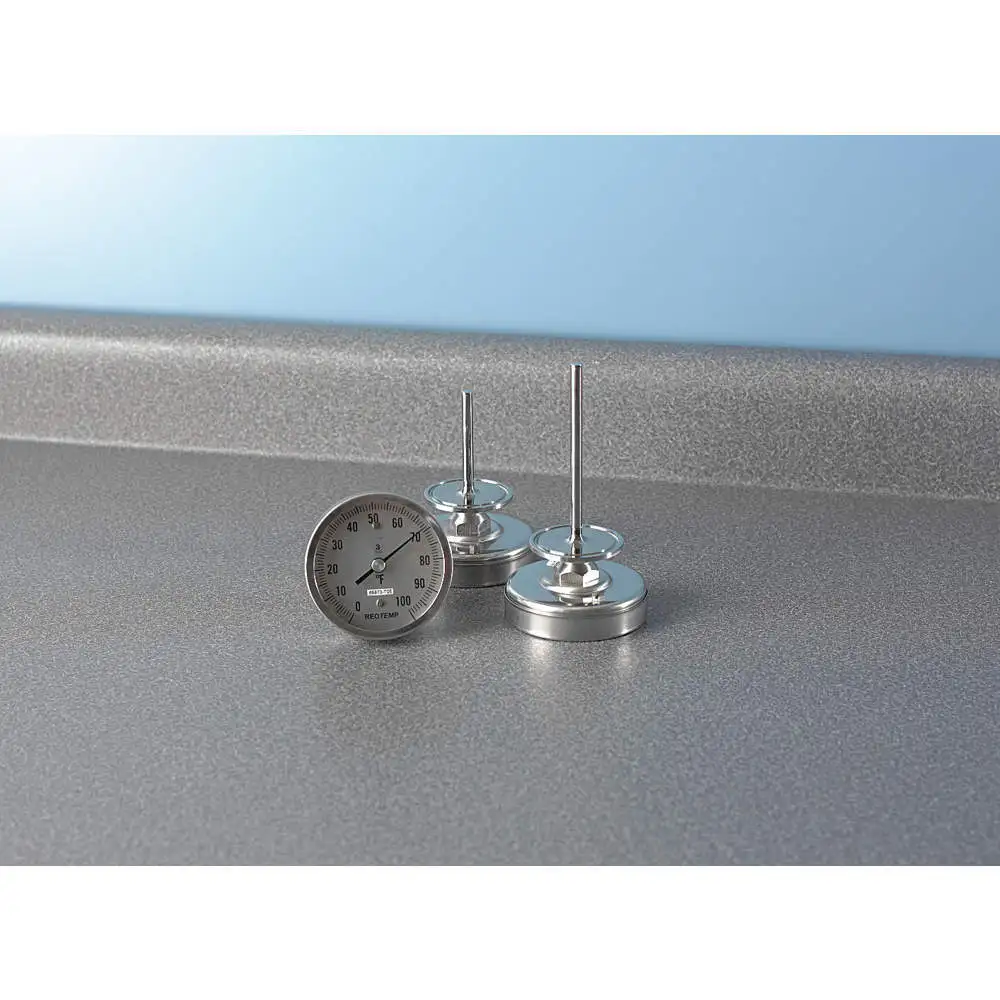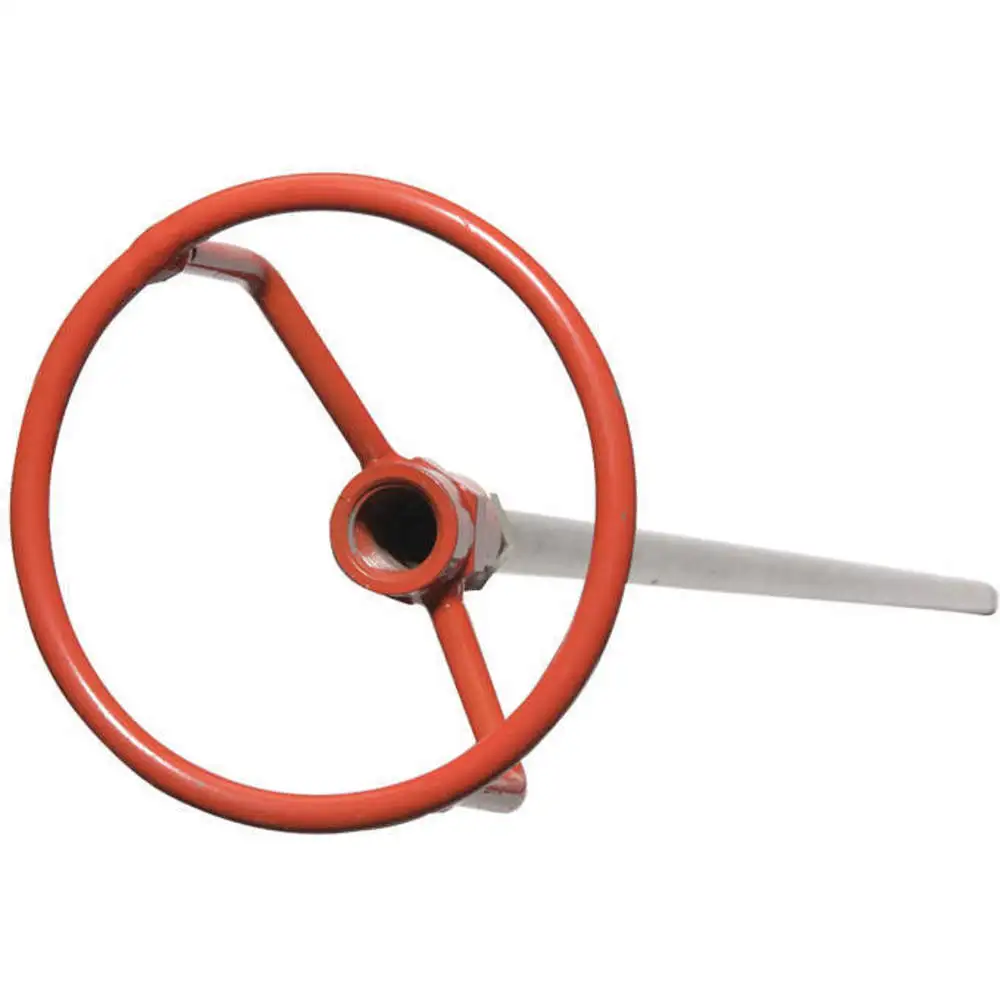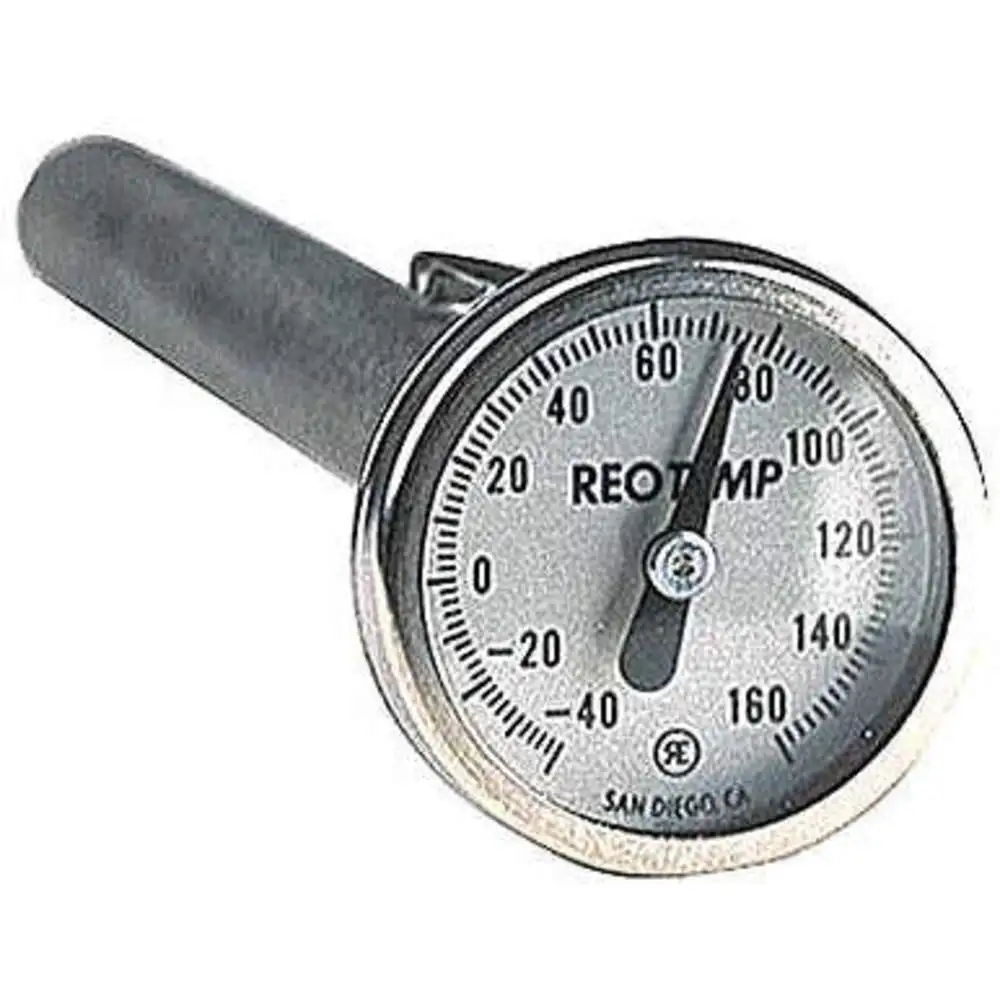Since 1965, Reotemp has been manufacturing temperature and pressure instruments for the oil & gas, power generation, food & beverage, biotech and pharmaceutical industries. Headquartered in San Diego, California, the brand's comprehensive catalogue includes bimetal thermometers, pressure gauges, diaphragm seals, RTDs, thermocouples, pressure transmitters, compost thermometers and accessories for a wide range of process markets. Reotemp sanitary dial thermometers have 300 Series polished stainless steel case for structural rigidity and durability. These thermometers offer back / bottom connection as per the user's requirement. They can withstand temperatures ranging from -40 to 300 degrees C and have a bimetal sensing element for accurate & reliable temperature measurements. The brand's QP02F23PS thermometer features a stainless-steel case and bezel for improved shock protection. It comes with an external adjustment screw for easy calibration.
See More
 Change Country
Change Country



